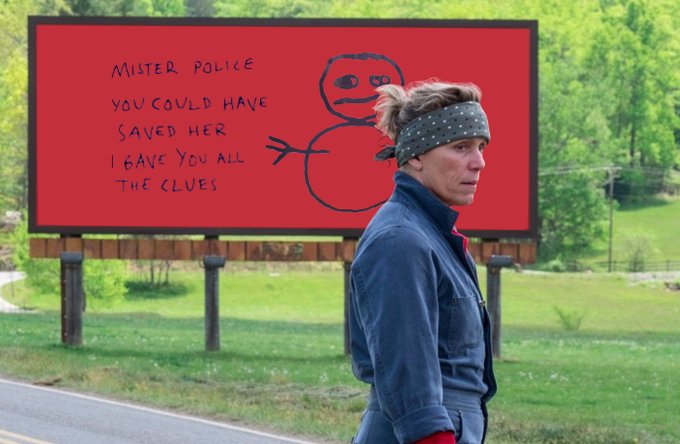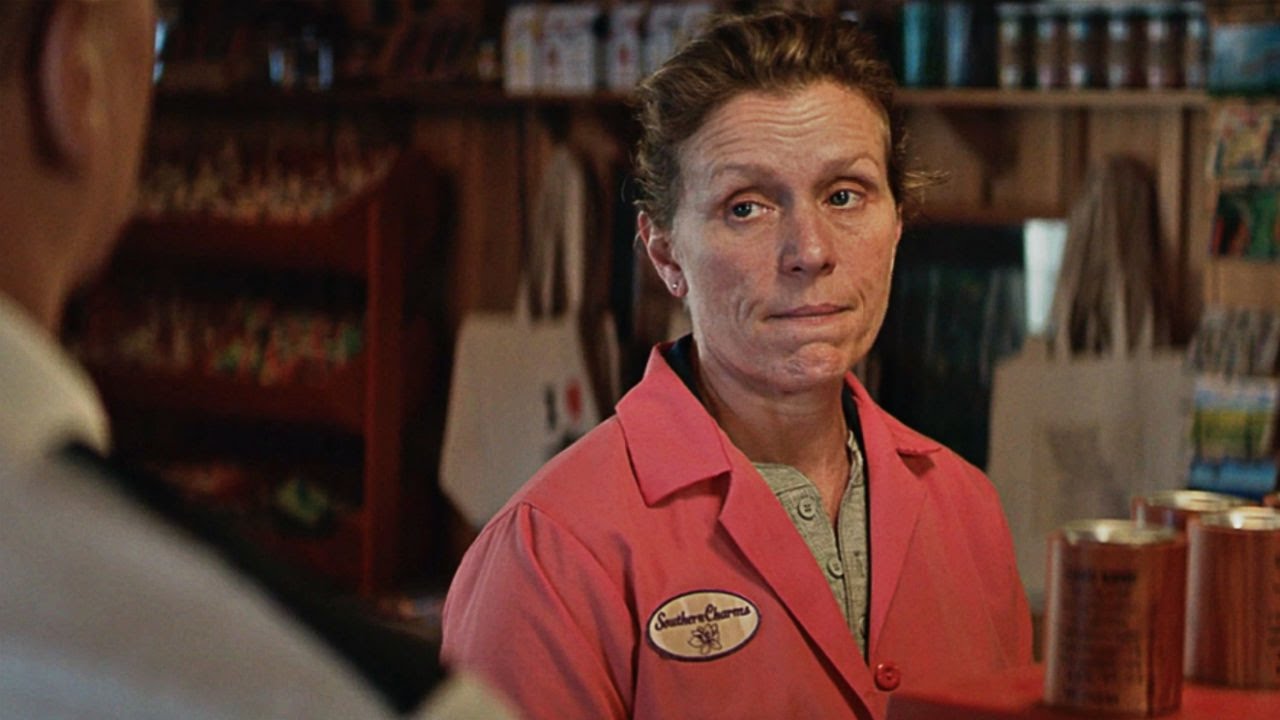Martin McDonagh has made one very good film (his 2008 debut In Bruges) and has coasted on this. General affection for that nasty bit of comedic melancholy, along with his stage credentials, has resulted in a pretty striking forgiveness on the part of critics. We are simply told that these are Good, Important Films, or maybe understandable overreaches, or, at the very least, ambitious failures. The fact that they are tone-deaf and stupid and insulting seems like a footnote instead of the lede, a fact half-heartedly noted before moving on to other topics, like Oscar candidacies. In a better world, the complete and utter failure of Three Billboards Outside Ebbing, Missouri would end this charade. As it tops critical list after critical list, it’s clear we don’t live in that world.
Where to start? From its stagy self-important title on down, Three Billboards means to be a film of the moment. The story is a simple one: a mom (Frances Mcdormand, my vote for the best actor working today) whose daughter was raped and murdered hires out those three billboards to press the local police chief (Woody Harrelson) to follow through on the investigation. It’s been 7 months and nothing has materialized. She feels discarded by the system, maybe by the town itself, and so wants to use the system to strike back.
McDonagh complicates this by giving the police chief cancer, so she’s really kicking a guy while he’s down — and anyways, the fact is there are no leads. Sometimes horrible shit happens. That’s it. A racist, drunk cop (Sam Rockwell) staggers about, trading barbs with his even more racist mom. Everyone is right, everyone is wrong. So forth.

Credit to https://mobile.twitter.com/cameronscheetz/status/928036322530484225
But Three Billboards isn’t content with even that platitude. The existential dread of the unsolvable crime dissipates too, with a rando rapist conjured out of thin air in the final act. It piles on misogyny — McDormand, for all her gifts, can’t resuscitate a character drawn in broad strokes (her “mannishness” is accentuated to an almost comical degree, if you enjoy jokes about dwarves and spousal abuse), as she squares off not just with the town but specifically with the ditzy women inserted, like walking symbologies, to give her gravitas. None of this is funny, or smart, or clever. None of it.
And then, like shit icing on a poop cake, we are tasked with relating to the most racist people in the film. Three Billboards is, without a doubt, an apologia for racism. It absolutely demands we celebrate the redemptive arc of cartoonishly villianous bigots, and insists that this is transgressive. It is not. It is a lie told by a screenwriter who doesn’t have the faintest idea about small town America but thought such things were edgy. Count the number of POC folks on screen; count their lines. This number is low, but Three Billboards thinks it’s heroic truth-telling on their behalf, mixed with macabre thrills. Seriously.
McDormand might win an Oscar for this. People will talk about Rockwell’s bravery, and Harrelson’s self-effacing turn. Hell, McDonagh might get a screenwriting nomination. We’re being lied to.

